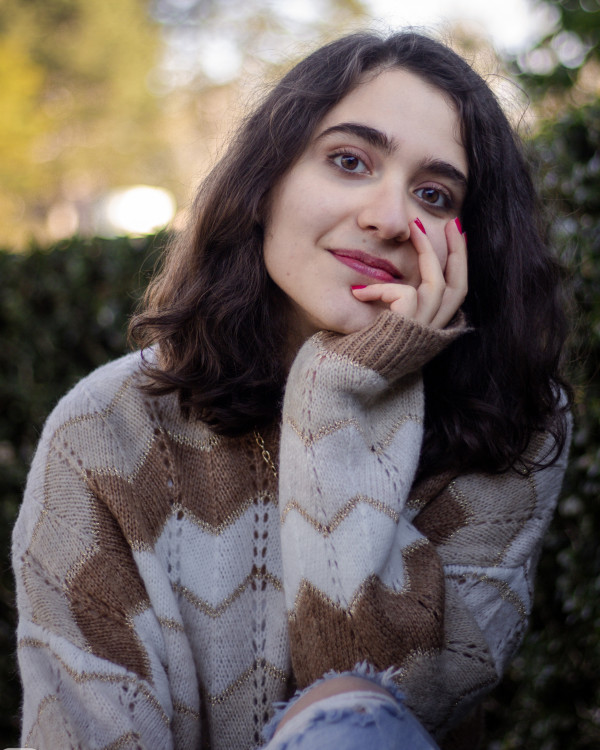Melika Honarmand
Interviewed by Carey Sargent, EPFL, NCCR MARVEL, in February 2023
Have you always been interested in science?
To be honest...yes!! Right from my childhood, I was fascinated by science. I have an older brother, and I used to ask him to teach me simple physics and math when I was ten. I couldn't wait to learn about this stuff at school, so I used to tell him, "please, please teach me something"! He's now pursuing a PhD at Stanford University.
My interest in computers came in middle school, where I had my first course in the fundamentals of programming. It didn't take long until I realized computer science is not just about sitting in front of a screen and coding. It encompasses various subfields, such as cryptography, network security, and database administration that involve problem-solving, critical thinking, and creativity. With the rise of data-driven decision-making, machine learning, and artificial intelligence, computer science has become even more critical in shaping the future.

What is the topic of your project?
I'm part of MARVEL's pillar 2, which is dedicated to developing and exploiting machine-learning capabilities for molecules and materials through universal machine-learning models, data-augmented quantum calculations, active-learning workflows, and automatic data exploration. In short, we're developing machine-learning platforms for molecules.
Do you think women face specific challenges in the sciences?
That's a tough question. Unfortunately, women are often subject to a kind of subconscious bias, which can lead to lower evaluations of their work and fewer opportunities for advancement. Science itself may be objective, but people conducting it are not immune to this bias. Sometimes women underperform in exams or interviews just because of anxiety related to the belief that they are not as capable as their male counterparts.
There have been so many great women in science. As an example, Maryam Mirzakhani was a brilliant Iranian mathematician who made incredible contributions to the field of mathematics. She was the first woman to receive the Fields Medal, the highest honor in mathematics. The reality is that women are still underrepresented in STEM fields. The fact that Maryam Mirzakhani was a woman and still managed to achieve so much is an inspiration to other women who may feel discouraged from pursuing these male-dominated fields. She serves as a reminder that women are just as capable as men in any field.
Do you have advice for young girls interested in science?
If you are not interested, don't force it on yourself, but if you are, please go for it! You are perfectly capable of doing what you want to do, and you can overcome difficulties. Don't let anything get in your way! If the voices are too loud, just put on some music and do it.
You’re the one who shapes your future.
What are your plans for the future?
At this point, I would say that as soon as I graduate, I'll apply for a master's or a direct PhD program. After that, I will probably go for a postdoc. I've planned to be a researcher in the end. Life is not that predictable, but I feel like I'm not going to stop this path of learning anytime soon.
Anything else?
I would like to thank NCCR MARVEL director Nicola Marzari for the opportunity and also, especially Michele Ceriotti. He's a wonderful professor and a compassionate person. He is understanding, and he has been so helpful in my journey of studying. So thanks a lot, Michele!!
